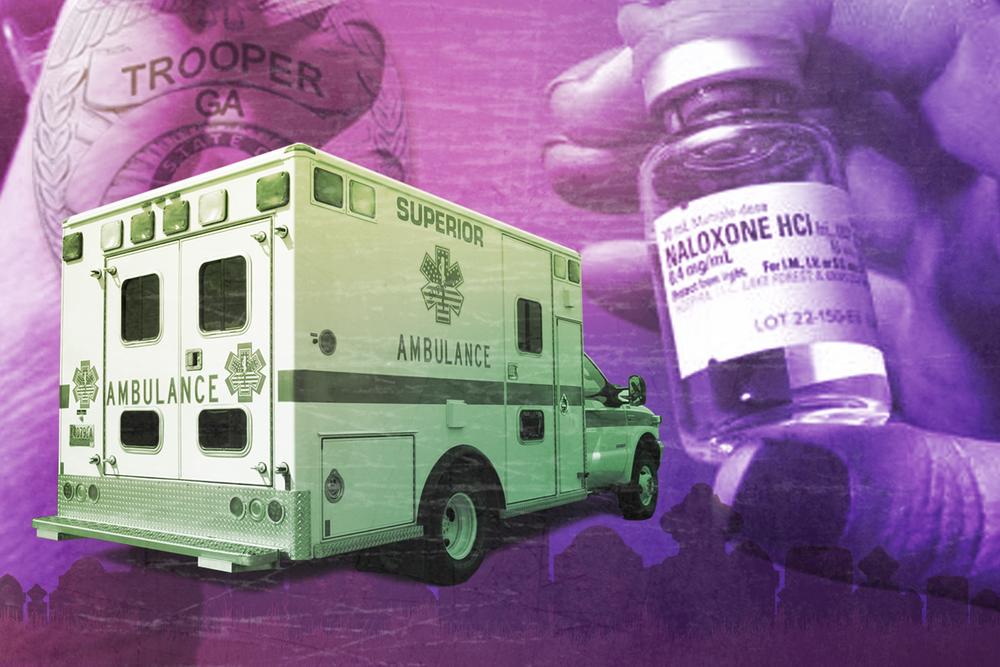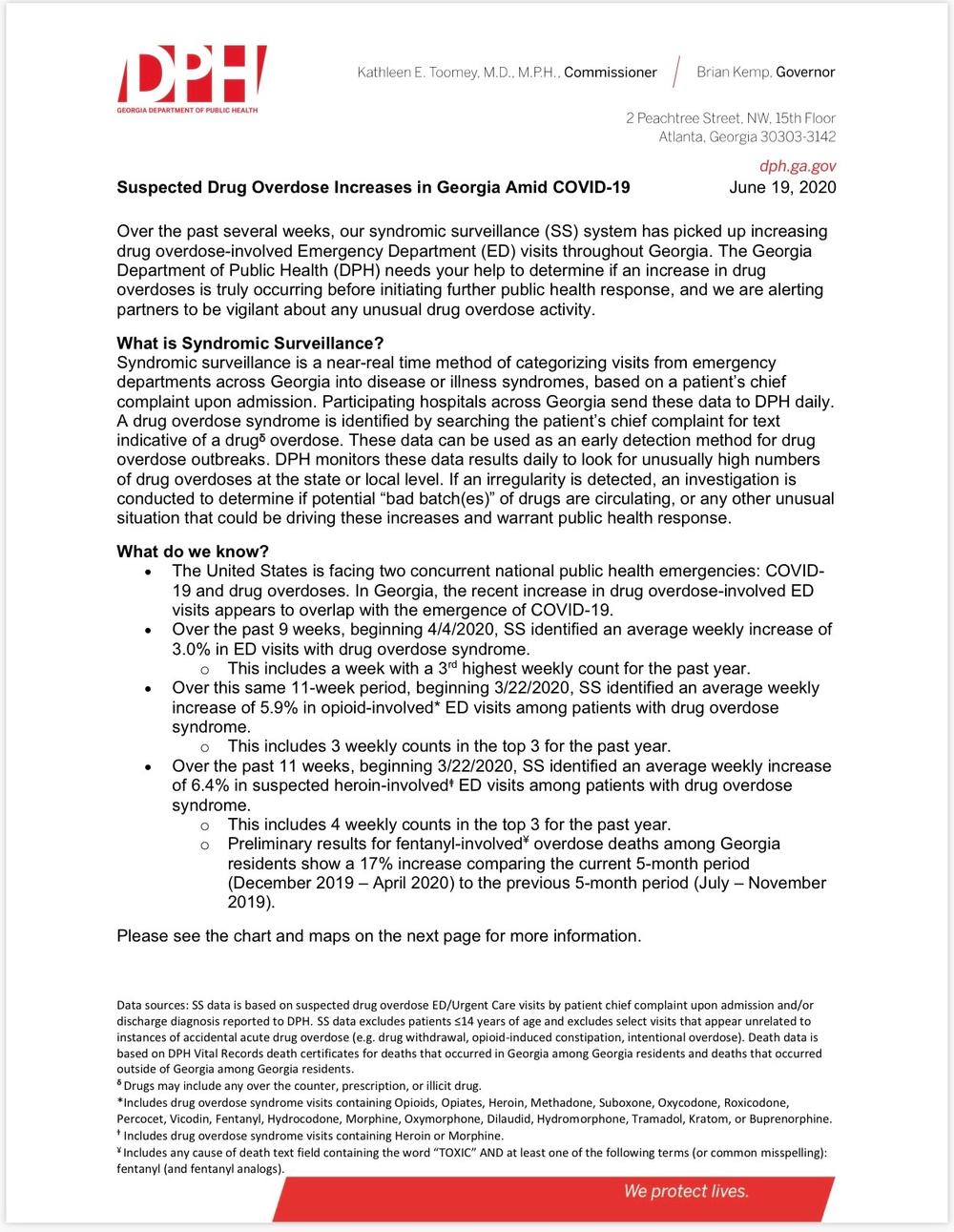Section Branding
Header Content
Increase In Suspected Drug Overdoses In Georgia Amid COVID-19
Primary Content
Emergency rooms across Georgia are seeing more suspected drug overdoses, raising concerns the state is beginning to see an exacerbated epidemic emerge amid the coronavirus pandemic, officials say.
Georgia's drug surveillance team outlined the rise in suspected drug overdoses in a June 19 memo that alerted its “partners to be vigilant about any unusual drug overdose activity” and that the department “needs your help to determine if an increase in drug overdoses is truly occurring.”
“Over the past several weeks, our syndromic surveillance system has picked up increasing drug-overdose involved Emergency Department visits throughout Georgia,” the memo said.
The increase of suspected overdoses comes as lawmakers are considering drastic budget cuts due to the pandemic crippling the state's economy. Advocates of addiction recovery say now is not the time to gut mental and behavioral health services.
"Georgia is experiencing an epidemic within the pandemic and this is the time to expand not cut recovery services and programs," said Jeff Breedlove with the Georgia Council on Substance Abuse.
Marietta police saw six overdose cases in April this year, compared to just two last year. Lt. Mike Goins started a program last May in which nine police officers are responsible for following up with drug users within 24 hours of their overdose.
Over the first year of the program, officers followed up with about 40 people and convinced four to get treatment for addiction.
MORE: How One Police Department Is Trying To Steer Addicts Into Recovery Instead Of Making Arrests
Goins spent this past Mother's Day driving a man who had twice previously overdosed in Marietta to a detox facility.
"I wasn't working, but I got dressed and I went and picked him up from his mom's house, and I took him to the Cobb-Douglas mental health detox," Goins said. "I signed him in."
Breedlove, the advocate for addiction recovery, said only about one in 10 people get the treatment they need. Substance use disorders and mental illness services are as vital and essential to the health and wellbeing of people in Georgia as any and every other medical issue, he said.
"Funding in the state budget must support not just treatment programs but also the essential peer-led programs for addiction recovery now more than ever," Breedlove said.
Recovery community organizations currently work with local sheriffs and police departments, local small businesses, local religious leaders and local health care officials. He said lawmakers must look hard at proposed budget cuts to health services, or the state could face much more severe problems down the road.
"People get services which keep them out of jail, out of hospital emergency rooms, while working and paying taxes," Breedlove said. "Eliminating these transformational recovery community organizations will wreak havoc in towns and cities across Georgia."
The drug surveillance team's memo drew attention to the state's syndromic surveillance system, which picked up increasing drug overdose visits to emergency rooms over the past 11 weeks.
The Office of National Drug Control Policy’s Overdose Data Mapping Application Program showed a 16.6% increase in suspected overdose submissions from January to April this year as compared to the same period in 2019, according to a May 13 ODMAP report. The nationwide and state data suggest the pandemic spurred increased drug use and overdose.
RELATED: Social Distancing Means People Who Need People Have A Tough Time Staying Sober
The legislature has until Friday to approve a budget.
This story has been update to attribute the June 19 memo to the state's drug surveillance team and not the DPH commissioner.



